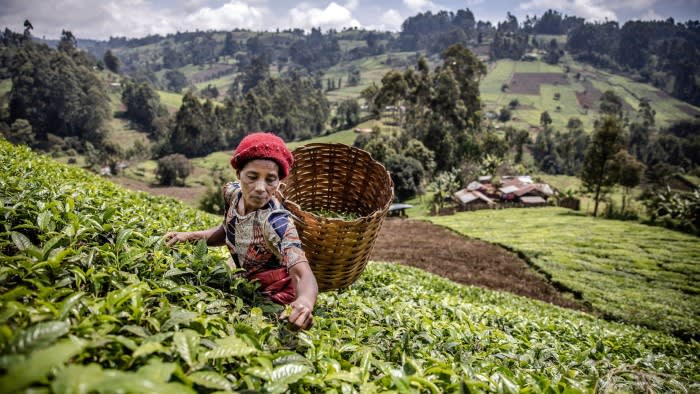Unlock the Editor’s Digest for free
Roula Khalaf, Editor of the FT, selects her favourite stories in this weekly newsletter.
CVC has agreed to sell the troubled Kenyan tea estates it purchased from Unilever less than three years ago to Browns Group, making the Sri Lankan conglomerate the world’s largest tea exporter.
The private equity group’s tea business, Lipton Teas and Infusions, announced on Wednesday it was offloading its plantations in east Africa, including the controversial Kericho plantation in Kenya that has a history of violence and sexual abuse.
The company did not reveal the size of the transaction but said the proceeds would be reinvested into a programme to transform the tea industry. As part of the deal, Browns has agreed that the 87mn kg of tea it sells annually will be grown to Lipton’s environmental, social and governance standards.
Browns is owned by Sri Lankan holding company LOLC Holdings, whose portfolio spans cars, pharmaceuticals, mining, agriculture and financial services. The group owns tea, pepper and rubber plantations in Sri Lanka, and purchased its first Kenyan tea estates business last year from Scottish group Finlays.
CVC acquired the three plantations in Kenya, Rwanda and Tanzania in 2021 as part of its purchase of Unilever’s tea business for €4.5bn. Lipton, whose brands include PG Tips, Lipton and Pukka, is the world’s largest tea company.
Lipton’s chief executive Nathalie Roos has set out to improve the quality of tea to boost wages and working conditions. “Our ambition is to deploy our standards across the whole industry,” she said, speaking to the Financial Times following the announcement.
The sale to Browns relieves CVC of a string of issues associated with owning the plantation.
Last month, the FT reported that a consortium of co-operatives in Kenya claimed it was ignored after expressing an interest in buying the estates, arguing that a sale to the local community would restore the land to descendants of clans who had been evicted in the early 20th century.
Lipton said on Wednesday it would offer shares totalling 15 per cent of the Kenyan operating company to the local communities, “to create accessible communal equity and mutually aligned economic participation”. The company also said it would invest 1bn Kenyan shillings (€7mn) into a new community welfare trust.
Last year, Browns offered a similar structure when it bought Finlays’ estates business in Kenya. The two sides agreed to offer 15 per cent of shares for public sale in the company through a local co-operative.
Historical violence and human rights issues in the region have hung over the region’s plantations. A BBC Panorama documentary filmed in the final months of Unilever’s ownership revealed sexual abuse was rife on the plantation.
The local community has also protested against the mechanisation of the tea estates by burning picking machines, arguing they have robbed workers of their livelihoods.
Private equity groups Advent International and Carlyle ended up pulling their bids for the business when it was first put up for sale, partly because they were not prepared to shoulder the responsibility of workers who were entirely dependent on the plantations for their livelihoods, or to risk bad headlines should anything go wrong.


